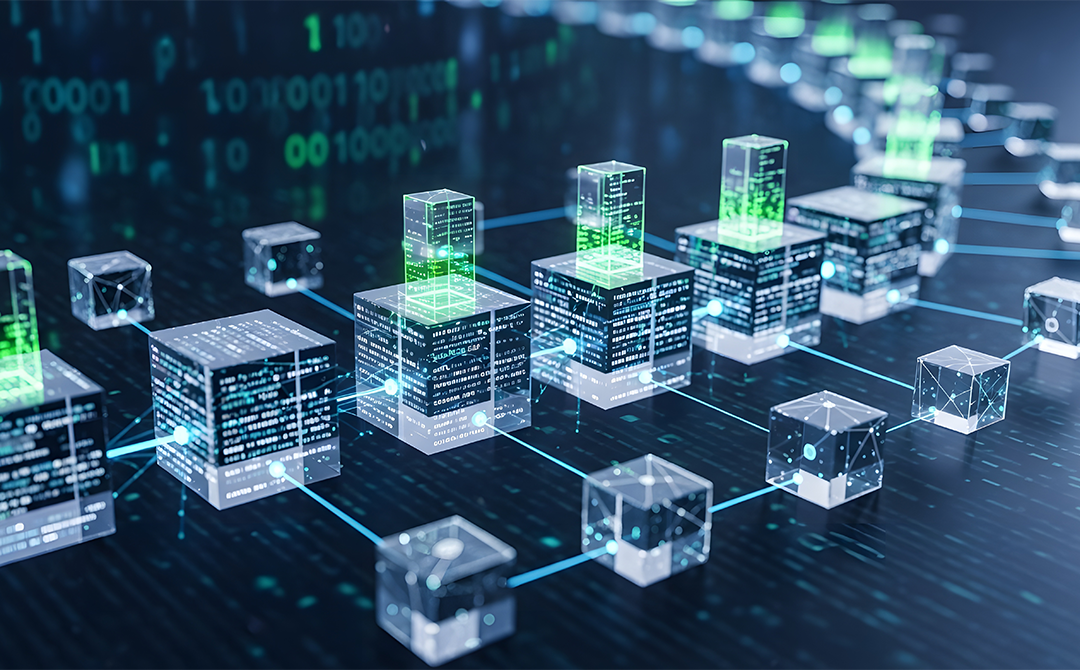
Every day, businesses generate vast volumes of data, yet up to 68 percent remain unused. With companies producing 328.77 million terabytes of data daily, untapped information represents billions in missed opportunities and unrealized value. (Source: IDC Data Sphere Report). The challenge is not a lack of effort—it is bottlenecks in the data pipeline.
Data engineers are overwhelmed, spending significant time on repetitive SQL queries, maintaining fragile pipelines, and firefighting instead of driving innovation. As data volumes explode and business demands accelerate, the traditional approach simply can not keep pace.
Enter AI agents for data engineering - specialized digital assistants that can understand context, reason through complex problems, and execute tasks with minimal supervision. Unlike simple automation tools, these agents adapt to changing requirements and collaborate to solve thorny data challenges.
Databricks customers report transformational results: SQL models that previously took hours are now completed in half the time, while code reviews have accelerated from five hours to just 30 minutes. [Source: Databricks] Moreover, companies implementing AI agents for data engineering experience an average of 40 percent faster pipeline development. [Source: gleecus.com]
This article explores how to select the right AI agent for your data engineering needs, examines the most powerful solutions available today, and provides insight into their capabilities and future potential.
How to Find the Right AI Agent for Data Engineering
Selecting an AI agent for your data engineering needs requires careful assessment beyond marketing claims. The right solution should enhance your existing workflows rather than forcing you to restructure your entire data ecosystem.
Before evaluating specific platforms, define your actual pain points. Are your data engineers spending excessive time on repetitive SQL transformations? Do they struggle with pipeline monitoring? Are data quality issues repeatedly slipping into production? The most valuable AI agent addresses your specific challenges rather than introducing capabilities you do not need.
Consider these key evaluation criteria when assessing AI agents for data engineering:
Integration Capabilities: The agent should seamlessly connect with your existing data stack, including databases, data warehouses, and orchestration tools. Consider a scenario where a financial services company might abandon an AI agent implementation if it could not properly integrate with their Snowflake environment. Such integration challenges could require costly workarounds that would potentially negate any efficiency gains.
Learning Curve: Evaluate how quickly your team can become productive with the agent. Some solutions require extensive configuration or specific prompt engineering skills before delivering value. This learning curve translates directly to the ROI timeline.
Domain Knowledge: The best AI agents for data engineering understand data concepts, SQL semantics, and common pipeline patterns without extensive training. Ask vendors about their foundation models' training on data engineering tasks specifically.
Customization Options: Your data environment has unique requirements. Can the agent adapt to your team's coding standards, security protocols, and workflow preferences? Or does it force you into rigid patterns?
Explainability: When the agent generates code or suggests pipeline changes, can your team understand its reasoning? Transparent agents explain their recommendations rather than expecting blind trust.
Governance and Security: Data engineering involves sensitive information. Ensure the agent provides appropriate controls for sensitive data, doesn't leak information across projects, and maintains audit trails of its actions.
If a global retail company implemented an AI agent for data engineering that checked most of these boxes but overlooked the governance requirements, it could face serious issues. For example, several months into deployment, they might discover the agent embedding PII in its learning corpus, which would create compliance issues requiring substantial remediation efforts.
By evaluating agents against these criteria while focusing on your specific data workflow challenges, you can identify solutions that truly add value rather than introducing new complexity.
Best AI Agents for Data Engineering
The landscape of AI agents for data engineering has evolved rapidly, with specialized tools emerging alongside broader platforms enhanced with data engineering capabilities. Based on real-world implementations and performance metrics, these AI agents demonstrate particular strength in data engineering workflows:
When selecting from these options, match the agent's specialization to your most pressing data engineering challenges. Organizations with mature data practices often benefit from deploying multiple specialized agents rather than seeking a single solution for all use cases.
Capabilities of AI Agents for Data Engineering
AI agents automate complex cognitive tasks that previously required human expertise, going far beyond basic code generation or query optimization.
Automated Pipeline Generation and Maintenance
AI agents can generate complete data pipelines from natural language specifications. A marketing team could describe their need to "combine social media data with website traffic," and the agent would build a full pipeline with error handling and validation logic.
These agents also excel at maintenance. When sources change or requirements evolve, they can automatically modify pipelines. This capability extends to performance optimization, where agents monitor metrics and suggest improvements, such as shifting from batch to micro-batch processing when data patterns change.
Intelligent Schema Design and Evolution
AI agents can design optimal data schemas that once required significant expertise. An insurance company could describe claims analysis requirements, and receive a complete dimensional model with grain definitions and slowly changing dimension handling, plus explanations of design decisions.
As needs evolve, agents suggest schema modifications that minimize disruption to existing analytics, prioritizing backward compatibility for critical reports while accommodating new requirements.
Data Quality Management
AI agents identify quality issues before they impact downstream consumers through pattern recognition and anomaly detection. A financial services firm could deploy an agent that generates quality checks from observed patterns, flagging unusual values while suggesting potential root causes.
These agents also excel at data cleansing, identifying inconsistencies across systems and generating transformation logic to harmonize values—tasks that typically require weeks of manual effort.
Cross-Platform Optimization
Advanced AI agents optimize workflows across different platforms in the modern data stack. A media company could implement an agent to analyze query patterns and optimize workload placement between their data warehouse and lakehouse environments.
This intelligence extends to storage optimization, suggesting data lifecycle policies like moving infrequently accessed data to lower-cost tiers and co-locating frequently joined tables for improved performance.
Natural Language Interfaces for Data Access
AI agents serve as natural language interfaces to complex data environments. Business users can ask questions like "What was our defect rate by production line last quarter compared to the previous year?" and receive accurate results without SQL knowledge.
These interfaces help refine ambiguous questions and clarify data limitations, ensuring results actually answer the intended question rather than just translating queries literally.
By evaluating AI agents based on these capabilities and matching them to your specific challenges, you can identify solutions that deliver genuine productivity improvements rather than incremental automation.
Tredence: A Leader in AI-Driven Data Engineering
Tredence has established itself as a frontrunner in AI-driven data engineering through its comprehensive AI-native data foundation and generative AI-powered decision intelligence. Their approach goes beyond simple automation to enable truly autonomous decision-making.
Differentiated AI Agent Framework
What sets Tredence apart is its four-pronged Agentic AI framework that unifies diverse data sources into real-time, decision-ready layers enriched with knowledge graphs and embeddings for contextual insights. This foundation supports AI agents that automate complex data engineering tasks while ensuring responsible AI adoption through transparency, bias detection, and governance.
Real-World Transformation with Proven Results
Tredence's impact spans industries with documented success:
- Retail Transformation: When partnering with a popular convenience store chain, Tredence established a data and analytics center of excellence that improved forecast accuracy by 10 percent, saved over $5 million, and dramatically expanded online product assortments.
- Cloud Migration Excellence: A major American retailer achieved 100 percent SLA adherence, 12 percent shrink reduction in production planning through ML, and 40 percent reduction in query costs after Tredence modernized their data infrastructure.
- Advanced Document Intelligence: Using their ATOM.AI solution built on Databricks Lakehouse, Tredence automates the synthesis of complex financial documents for private equity firms, generating actionable summaries and real-time market insights from unstructured data.
Tredence's end-to-end approach combines advisory services, implementation expertise, and operational support to reduce technical debt and total cost of ownership, with clients reporting a reduction in platform costs and faster time to insights.
Reimagine your data engineering workflows with enterprise Agentic AI. Discover Milky Way.
Future of AI Agents For Data Engineering
The evolution of AI agents for data engineering is accelerating, with several transformative developments reshaping how data teams operate. Understanding these trends helps organizations prepare strategically for the changing landscape.
Autonomous Data Operations
Next-generation AI agents will autonomously operate entire data ecosystems, continuously monitoring quality, performance, and requirements while making adjustments without human intervention.
Logistics companies could implement systems where AI agents manage data platforms, handling schema evolution, query optimization, resource allocation, and cost management. When requirements change, these agents automatically adjust data models while maintaining backward compatibility.
This autonomy frees engineers for strategic initiatives but requires appropriate guardrails to ensure decisions align with business priorities and compliance requirements.
Multi-Agent Collaboration Networks
Future platforms will feature specialized AI agents collaborating to solve complex data problems. Each agent will have distinct expertise but coordinate through shared context and goal-oriented communication.
Healthcare providers could implement models where different agents handle pipeline aspects. When new regulations affect patient data, one agent would identify schema changes, another would update transformations, a third would generate quality checks, and a fourth would update documentation—all coordinated through a central orchestration layer.
Real-World Efficiency Gains
Databricks customers report tasks that previously took hours are now completed in half the time, with code reviews reduced significantly. Allegis Group has successfully automated profile updates and job description generation, reducing technical debt in its data workflows.
Domain-Specific Knowledge
Future agents will incorporate deep domain-specific knowledge relevant to particular industries. Financial services companies could develop agents with a specialized understanding of regulatory requirements, accounting principles, and security compliance, ensuring pipelines satisfy both technical and business rule constraints.
Causal Reasoning and Hypothesis Testing
Advanced agents will move beyond pattern recognition to causal reasoning about data relationships. Manufacturing teams could implement agents that identify quality variations, generate hypotheses about causes, design tests, and identify likely explanations, transforming decision-making from descriptive to prescriptive insights.
Human-Agent Collaboration
The evolution of human-agent collaboration models will be crucial. Retail analytics teams could implement workflows where agents handle routine maintenance while escalating novel situations to humans, who focus on strategic decisions and evaluating complex recommendations.
Cross-Industry Application
The adoption of AI agents for data engineering spans diverse industries with impressive results. Kinaxis uses AI agents for supply chain scenario modeling, while Dematic has implemented agents to automate e-commerce fulfillment data processes, delivering measurable improvements in efficiency, accuracy, and scalability across sectors. From healthcare organizations using Agentic AI to standardize patient data across disparate systems to financial institutions employing the best AI agents for data engineering to ensure regulatory compliance, the technology's versatility makes it valuable regardless of domain. These cross-industry implementations demonstrate that AI agents are not merely theoretical tools but practical solutions delivering quantifiable business impact today.
As organizations across sectors continue to realize these benefits, Tredence has emerged as a key player shaping this transformation with its unique approach to Agentic AI for data engineering. Let us examine how Tredence's specialized solutions are setting new standards for intelligent data operations.
The New Blueprint for Data Engineering Success with Tredence
AI agents for data engineering represent a paradigm shift in how organizations manage, transform, and derive value from their data assets. By automating complex cognitive tasks, these intelligent assistants free human engineers to focus on strategic initiatives while improving operational efficiency and data quality.
The most successful implementations match specific AI agent capabilities to genuine organizational pain points rather than pursuing general-purpose solutions. Whether streamlining pipeline development, optimizing queries, or enabling natural language data access, the right agent can dramatically accelerate data engineering workflows.
As documented by leading organizations across industries, the benefits are substantial. Companies like Geotab, BMW Group, and Allegis Group demonstrate how these technologies can transform data engineering practices while delivering measurable business value.
Tredence has positioned itself at the forefront of this transformation with its AI-native data foundation and comprehensive Agentic AI for data engineering. Their clients have experienced tangible outcomes, including a 60 percent reduction in platform costs, a 30 percent faster time to insights, and substantial operational improvements across retail, finance, and healthcare sectors. Their end-to-end approach combines domain expertise with cutting-edge AI capabilities to deliver accelerated time-to-value.
As AI capabilities continue to evolve, organizations should prepare for increasingly autonomous and collaborative data operations. By establishing appropriate governance frameworks, domain-specific knowledge bases, and human-agent collaboration models now, data teams can position themselves to capitalize on future advancements.
Tredence's AI consultation experts can help your organization identify the right AI agent solutions for your specific challenges and implement them in ways that deliver measurable business value. Contact us today to discover how intelligent automation can transform your data engineering practices and unlock new capabilities across the organization.
FAQs
What is the best use case to try AI agents in a data engineering workflow?
Pipeline maintenance is the ideal starting point. AI agents excel at identifying necessary updates when data formats change or requirements evolve. These well-defined, repeatable tasks have clear success criteria, allowing teams to build confidence in AI capabilities while gaining immediate productivity. Begin with high-maintenance pipelines that require frequent adjustments due to changing source systems.
How do data teams make sure AI-generated transformations are accurate?
Data teams ensure accuracy through multi-layered verification:
1) Automated testing frameworks that validate generated code against expected outputs,
2) Human-in-the-loop reviews for critical transformations,
3) Observability tools monitoring for statistical anomalies, and
4) Clear documentation of business rules that both humans and AI can reference when evaluating transformation logic.
Do AI agents in data engineering require human feedback to improve?
Yes, human feedback plays a key role in helping AI agents improve. While they can automate tasks and learn from data patterns, human input ensures accuracy, handles edge cases, and guides continuous learning, especially in complex or changing data environments.

AUTHOR - FOLLOW
Editorial Team
Tredence




